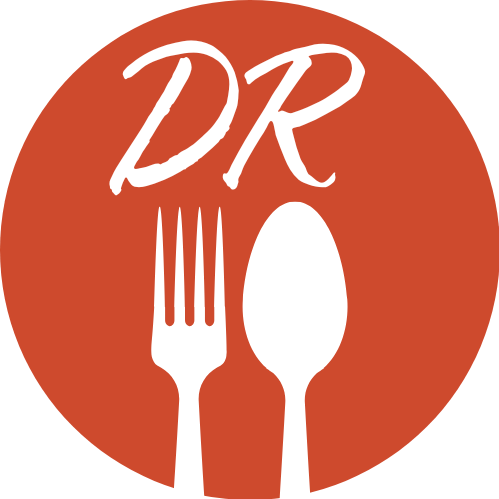Fried eggs are a global breakfast favorite, celebrated for their simplicity, quick preparation, and delightful taste. These healthy fried eggs, when prepared mindfully, can be a nutritious addition to your meals. They’re incredibly versatile, pairing well with everything from toast to rice bowls, making them suitable for any meal of the day. However, their healthiness depends largely on cooking methods and accompanying foods.
Nutritionally, fried eggs are packed with protein, essential vitamins like B12 and D, and antioxidants such as lutein and zeaxanthin, which support eye health. They also contain dietary cholesterol, which is now understood to have minimal impact on most people’s blood cholesterol levels.
To include fried eggs in a healthy diet, opt for cooking them in heart-friendly oils like olive or avocado oil and pair them with nutrient-dense sides like whole-grain bread, vegetables, or fruit. With mindful preparation and portion control, fried eggs can be a delicious and nutritious addition to your meals.
Exploring the Nutrition Behind Fried Eggs
Fried eggs are a popular addition to meals, not only for their flavor but also for their impressive nutritional profile. They provide a balanced mix of calories, macronutrients, vitamins, and minerals, making them a nutrient-dense choice.
Breaking Down Calories and Macronutrients
A single large fried egg offers approximately:
- Calories: Around 90
- Protein: 6 grams
- Fat: 7 grams
- Carbohydrates: Less than 1 gram
This macronutrient composition makes fried eggs an excellent source of high-quality protein and healthy fats, ideal for muscle repair, satiety, and energy.
Key Vitamins and Minerals Found in Eggs
Fried eggs are loaded with vital nutrients, including:
- Vitamin B12: Crucial for red blood cell production and brain function.
- Vitamin D: Supports bone health and strengthens the immune system.
- Selenium: Acts as an antioxidant, protecting cells from damage.
- Choline: Essential for brain development, nerve function, and metabolism.
These nutrients make fried eggs a valuable addition to a balanced diet, supporting various bodily functions.
Understanding Cholesterol in Eggs: Facts and Myths
Eggs are known for their cholesterol content, with one large egg containing about 185 milligrams. However, recent studies suggest that dietary cholesterol has a minimal impact on blood cholesterol levels for most people. The real contributors to high cholesterol are saturated and trans fats, often found in processed foods.
For individuals without cholesterol sensitivity or heart conditions, fried eggs can be a nutritious option. To maximize their health benefits, they should be cooked with healthy fats like olive or avocado oil and paired with nutrient-rich sides such as whole grains and vegetables. With mindful preparation, fried eggs remain a wholesome, nutrient-packed choice for any meal.
Benefits of Adding Eggs to Your Diet
Fried eggs are not just a flavorful addition to meals; they are also a powerhouse of nutrients that offer several health benefits. From providing high-quality protein to delivering essential vitamins and antioxidants, fried eggs can be a valuable part of a balanced diet when prepared mindfully.
Protein Power: Muscle and Tissue Repair
Fried eggs are an excellent source of complete protein, meaning they contain all nine essential amino acids required for human health. Each large fried egg provides around 6 grams of high-quality protein, making it ideal for muscle repair, tissue regeneration, and overall body maintenance. This protein content helps maintain muscle mass, supports physical recovery after exercise, and contributes to overall satiety.
Rich Source of Essential Vitamins (B12, D, etc.)
Fried eggs are rich in vital vitamins that support various body functions:
- Vitamin B12: Essential for red blood cell production, brain health, and energy metabolism.
- Vitamin D: Crucial for bone health, calcium absorption, and immune system strength.
These vitamins make fried eggs a nutrient-dense choice for boosting energy and supporting overall health.
Antioxidants in Eggs: Lutein and Zeaxanthin
Egg yolks contain significant amounts of lutein and zeaxanthin, two powerful antioxidants known to promote eye health. These nutrients protect against age-related macular degeneration and cataracts, ensuring long-term vision health.
Common Concerns About Fried Eggs
While fried eggs are nutritious, certain concerns arise regarding their cholesterol content and frying methods.
Is Cholesterol in Fried Eggs Harmful?
Eggs contain dietary cholesterol, with one large egg having approximately 185 milligrams. However, research shows that dietary cholesterol has little effect on blood cholesterol levels for most individuals. The primary culprits for high blood cholesterol are saturated and trans fats. For people with cholesterol sensitivity or heart conditions, it is advisable to monitor egg consumption.
Impact of Frying Methods on Health
The cooking method can significantly affect the healthiness of fried eggs. Frying eggs in butter or unhealthy oils at high temperatures can increase calorie content and produce harmful compounds. Cooking with healthier fats like olive oil and using moderate heat minimizes these risks.
Does Frying Add Unhealthy Fats?
Using excessive butter or margarine can add unnecessary saturated fats. Opting for healthier oils such as avocado or olive oil helps retain the eggs’ nutritional benefits while avoiding harmful fats. Pairing fried eggs with nutrient-rich sides like vegetables further enhances their healthfulness.
How Cooking Methods Affect Fried Egg Healthiness
The way you prepare fried eggs can significantly impact their healthiness. Choosing the right cooking method and tools can help retain their nutritional benefits while minimizing unnecessary fats and calories.
Frying with Butter vs. Oil: Which is Better?
Butter is a popular choice for frying eggs because of its rich flavor, but it contains saturated fats, which can raise cholesterol levels when consumed excessively. In contrast, oils like olive or avocado oil are healthier alternatives. These oils are rich in unsaturated fats, which support heart health and provide essential fatty acids. For a balance of flavor and nutrition, use a small amount of high-quality butter occasionally or rely on heart-healthy oils for regular cooking.
Best Practices for Healthier Frying
To make fried eggs healthier:
- Use a non-stick pan to reduce the need for added fats.
- Choose heart-healthy oils like olive or avocado oil to lower saturated fat intake.
- Cook on medium heat to prevent burning and preserve nutrients in the egg.
These practices ensure that your fried eggs remain nutritious while minimizing added fats and calories.
The Role of Non-Stick Pans and Cooking Spray
Non-stick pans are essential for healthier cooking as they reduce the need for excessive oil or butter. A light coating of cooking spray or a small amount of oil can help keep calories in check, making your fried eggs a lighter option.
Comparing Fried Eggs to Other Egg Preparations
Fried vs. Boiled Eggs: Healthier Choice?
Boiled eggs are naturally lower in calories and fat because they require no added oil. However, when fried with healthy oils, fried eggs retain their nutritional value and offer a satisfying flavor and texture.
Scrambled vs. Fried: Nutritional Differences
Scrambled eggs often require more butter or oil, increasing their calorie and fat content. In contrast, fried eggs provide more control over portion size and fat content, making them a more predictable choice for calorie-conscious eaters.
Who Should Be Cautious About Eating Fried Eggs?
Fried eggs are a nutrient-packed food, but they may not be suitable for everyone in unlimited quantities. Certain individuals, such as those with heart conditions or those managing their weight, should take extra care when consuming fried eggs.
Heart Patients and Cholesterol Sensitivity
Eggs are high in dietary cholesterol, with one large egg containing approximately 185 milligrams. For most people, this dietary cholesterol has little impact on blood cholesterol levels. However, individuals with heart conditions or cholesterol sensitivity, such as familial hypercholesterolemia, should limit egg consumption. Fried eggs, in particular, can increase calorie and fat intake if cooked in butter or unhealthy oils. Such individuals may benefit from opting for boiled or poached eggs, which are lower in fat and calorie content, as they do not require added oils. When frying eggs, using heart-healthy oils like olive or avocado oil is advisable.
Dietary Recommendations for Weight Watchers
Weight-conscious individuals can enjoy fried eggs as part of a balanced diet, but moderation is key. To keep fried eggs diet-friendly:
- Minimize oil usage by using non-stick pans or cooking spray.
- Pair fried eggs with low-calorie sides like fresh vegetables or whole-grain toast.
- Avoid high-calorie additions like bacon or butter-rich accompaniments.
By preparing fried eggs with minimal fat and combining them with nutrient-dense foods, weight watchers can savor them without exceeding calorie limits.
Common Problems with Fried Eggs and Solutions
Overcooking: Nutrient Loss and Taste Issues
Overcooking eggs can result in rubbery textures and a loss of heat-sensitive nutrients like certain B vitamins. To prevent this, cook fried eggs over medium heat and remove them from the pan promptly once the whites are set and the yolk reaches your desired consistency.
Avoiding Excessive Oil and Greasiness
Too much oil can make fried eggs greasy and calorie-dense. To reduce fat content, use a non-stick pan and a light brush of oil or cooking spray. These tools help achieve perfectly cooked eggs with minimal added fat.
Expert Opinions on Fried Eggs and Health
Nutritionists and dietitians often emphasize the benefits of eggs as a high-protein, nutrient-rich food. They advise moderation and mindful preparation to maximize the health benefits of fried eggs while minimizing risks. Choosing healthy oils, controlling portion sizes, and avoiding high-calorie pairings ensure fried eggs remain a nutritious option for most people.
Tips for Including Fried Eggs in a Balanced Diet
Fried eggs are versatile, delicious, and nutrient-rich, making them an excellent addition to a balanced diet when consumed mindfully. The key lies in pairing them with healthy sides, practicing portion control, and maintaining a diverse meal plan.
Pairing Fried Eggs with Healthy Sides
To enhance the nutritional value of fried eggs, pair them with wholesome and nutrient-dense foods. Here are some ideas:
- Whole-Grain Toast: Whole grains provide complex carbohydrates and fiber, balancing the protein in eggs and offering long-lasting energy.
- Sautéed Spinach or Other Greens: Greens like spinach, kale, or arugula add vitamins, minerals, and antioxidants, creating a nutrient-packed meal.
- Avocado Slices: Rich in heart-healthy monounsaturated fats and fiber, avocado pairs well with fried eggs, enhancing both flavor and nutrition.
- Fresh Fruit: Adding fruits like berries, orange slices, or apple wedges brings natural sweetness and an extra boost of vitamins and fiber to your plate.
These combinations not only elevate the taste but also ensure that your meal is balanced and satisfying.
Portion Control and Frequency of Consumption
While fried eggs are nutritious, consuming them in moderation is essential.
- Portion Control: Stick to 1–2 eggs per serving to avoid excessive calorie or cholesterol intake.
- Frequency: Limit fried egg consumption to a few times a week. Incorporate other protein sources such as legumes, fish, or poultry to maintain dietary diversity.
This approach helps you enjoy fried eggs without compromising on overall dietary goals.
Conclusion: Are Fried Eggs a Healthy Choice?
Fried eggs can undoubtedly be part of a healthy diet when prepared with care. Using healthy fats like olive or avocado oil, minimizing added oil, and pairing them with nutrient-rich sides can maximize their benefits. Their high-quality protein, essential vitamins, and antioxidants make them a valuable food choice.
However, moderation is crucial. For most people, fried eggs are a delicious way to boost protein and nutrient intake. By balancing them with other food groups and maintaining portion control, you can enjoy fried eggs guilt-free as part of a varied and nutritious meal plan. With thoughtful preparation and mindful consumption, fried eggs remain a simple, healthy, and satisfying dietary staple.
You May also be Interested in:
What’s the Difference Between a Burrito Bowl and a Taco Bowl? A Detailed Comparison

